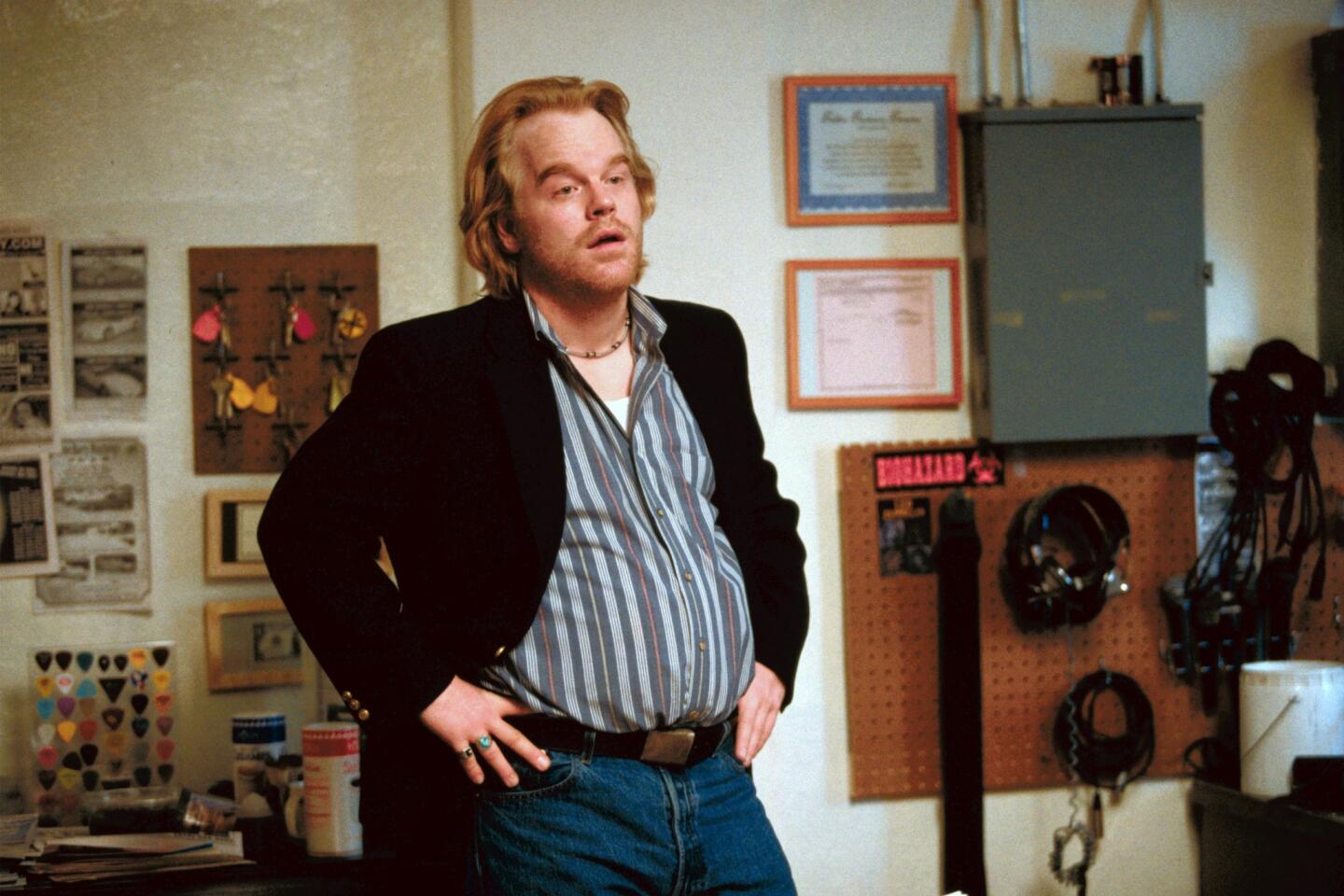Will Philip Seymour Hoffman’s death help us to rediscover privacy?
Finally, instead of TMZ, is America saying TMI? Too much information about a celebrity? The NBC news accounts of Philip Seymour Hoffman’s “secret diaries” — two volumes found in his apartment — are getting some surprising pushback.
The Times’ story on the NBC exclusive cites Twitter comments about the diaries — not their contents but NBC’s revealing them — as “pretty tacky that anon police are offering news orgs Philip Seymour Hoffman’s diary.” And so on: “simply nauseatingly intrusive” and “just despicable.”
The Times’ story itself attracted a comment in the same vein: “This is a ridiculous invasion of privacy ... he did not shoot up a school, murder his wife ... he killed himself, why do they need to know what’s in his diary? This is just ghoulish.”
Is it possible we’re getting glutted on other people’s — famous people’s — lives, and deciding to raise up walls again, at least to shield ourselves from unwanted information?
The amount of time devoted to unearthing and trafficking in celebrity gossip has grown in proportion to the places available to put it, mostly in social media. That chatter is cheap to collect and hugely profitable to purvey — compared to, say, serious reporting on how the U.S. government is handling the taxpayer-funded war in Afghanistan.
And it comes in several sizes and packages:
The complicit kind, in whch the celebrities, most of them reality-show cannon fodder, manufacture and market themselves as celebrities and violate their own privacy for a pretty penny. The “Housewives” franchise and the Kardashians come first to mind. Is there anything about themselves that they’re not willing to tell the world?
Then there’s the kind who feel some need to wrestle publicly with private demons, like Dylan and Mia Farrow and, by extension, Woody Allen. Hoffman had certainly talked about his addiction problems; perhaps it was part of the therapy to defeat them.
And there are celebs who want to be known by their work alone but who find that, paradoxically, that reluctance to “share” amps up the value of any nuggets the gossip miners can find about them.
Are we getting sick of it, or at least getting wise to it? The Kardashians’ season premiere took a ratings header. Is it more than just a restless audience looking for some new phenomenon with even more sensational manufactured drama? Maybe it’s the manufactured drama of reality TV itself that’s wearing thin; perhaps Americans are getting the uneasy feeling that they’re being manipulated and made fools of by marketing spectacles.
And then along comes poor, demon-haunted Hoffman, dying a junkie’s death, and at least some would-be readers are saying: Enough — not only do I not want to read it but you, NBC, shouldn’t be offering it up.
Using celebs to drive click-traffic isn’t like the old days, when you could flip furtively through the National Enquirer in the grocery store checkout line and then put it back without actually buying the thing. Now, every gossipy link you click on puts money in some seller’s pocket and signals to him that you want more of the same — a feedback loop of seaminess. I don’t think the Miami Beach cop who allegedly tried to take Justin Bieber’s photo after he was arrested was doing it for her scrapbook.
You’ll let me know, won’t you, if the first thing you do after reading this post is to go rushing off to Google “Philip Seymour Hoffman secret diaries”?
ALSO:
Is China playing a double game on prostitution?
C’mon, Angelenos, show some passion to save the pumas
Three words that could have saved Kim Pham’s life — and could save yours
Follow Patt Morrison on Twitter @pattmlatimes
More to Read
A cure for the common opinion
Get thought-provoking perspectives with our weekly newsletter.
You may occasionally receive promotional content from the Los Angeles Times.












